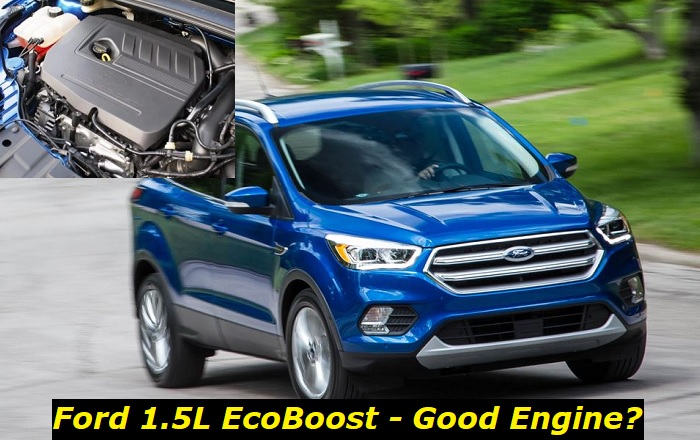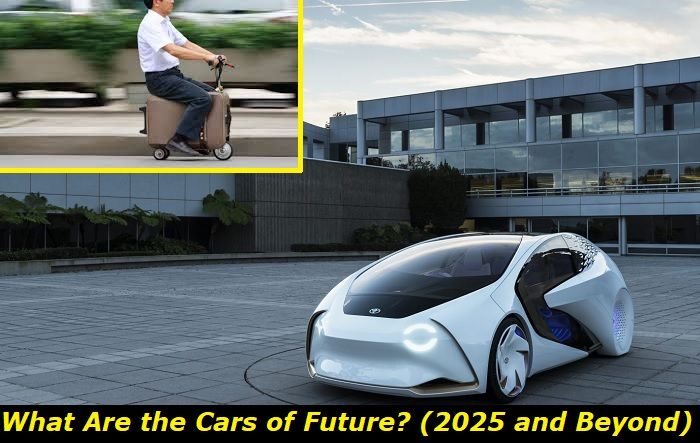When you are looking for information about a certain engine, Google starts attacking you with all those clickbait titles "Beware of Ford EcoBoost" and "Attention: Bad Longevity". You should know before you start reading this article that we believe Ford engines are quite good and we don't want to criticize the EcoBoost family just because it's slightly less durable than an old naturally aspirated engine.
Also, we want you to know that any engine has its own problems and common issues and there is no perfect engine in the industry of cars. Today, we'll tell you about the 1.5 EcoBoost engine made by Ford and offered in several models. This engine is not bad and not perfect either, so seat yourself comfortably and learn more about this unit.

Key features and my opinion about the engine
- Production years:2014-now
- Average lifespan of 1.5L 4-cylinder EcoBoost:140,000-190,000 miles
- Fuel supply type:direct injection
- Power range:148-181 hp
- Fuel efficiency:good
- Engine block material:aluminum
- Engine reliability score:low
- The most common problems:overheating issues, head gasket failure, water pump problems, engine knocking issue, carbon buildup on intake valves, no lifters.
Ford 1.5L EcoBoost - a few facts you will want to know
First of all, let's keep it clear - we are talking about the 4-cylinder 1.5 EcoBoost, not about the new 3-cylinder beast for the Fiesta ST making 200 hp out of its 3 cylinders.
The older 4-cylinder turbocharged 1.5-liter engine was first presented in 2014 in a Ford Fusion and it was a good replacement for the older 1.6-liter EcoBoost that came with a lot of common problems and with really poor longevity.
Now, the 1.5 EB came with different ECU settings and could deliver from 150 hp to 184 hp of power depending on the year and model of the vehicle it was used in. The engine featured a new technology of the integrated exhaust manifold, so no common problems with this thing are going to happen.
Here are some cool facts you will want to know about the engine:
- the reduced displacement was the result of the new tax policy for some states, so 1.5-liter engines became less costly to own;
- also, the previous low-displacement engine (1.6 EcoBoost) wasn't successful at all, the unit delivered a huge number of problems including fatal ones;
- the 1.5-liter versions can boast a completely new water-pump control system for a much shorter warm-up time in cold weather;
- the displacement reduction didn't bring any difference in fuel consumption, at least in average city conditions;
- quite a simple technology made this engine easier to maintain and repair, but all standard troubles of the EB family are here to find;
- the engine is cool in terms of driving emotions - you will not care if it's a low-displacement unit once you push the pedal harder in your vehicle.
Though, not all applications were really successful. And here comes one of the major troubles of this engine - we think Ford didn't do much research before installing this engine in some models. This unit works hard even in a small vehicle, but in an SUV it will just tear itself apart to show at least some performance.
Unfortunately, the downsizing trend is here forever (at least until we forget about gasoline engines and go to EVs). Can you remember a really good engine with a displacement of under 2 liters? This is one of the first models that will come to your mind once you investigate the market.
Application of the 1.5 EcoBoost inline-4
The engine was used for a lot of models and nearly every model got its own version of the ECU settings. The majority of the 1.5 EcoBoost engines were used in Ford vehicles:
- Ford Focus;
- Ford Fusion (Mondeo in Europe);
- Ford Escape (but not in European Kuga);
- Ford C-MAX for some markets.
Also, between 2017 and 2019, a Chinese SUV Landwind X7 used this engine in China.
Well, the list of models is not really wide and we don't see here a pretty obvious Fiesta or EcoSport. Why? Only Ford marketing managers can answer this question.
What's the durability of the 1.5 EcoBoost?
Longevity is always one of the key factors in choosing a proper engine for your vehicle. So, how many miles will the 1.5 EcoBoost go? Our estimation is 150,000 miles with no major issues.
You may say, "Oh, that's not a lot! I remember my 7.3-liter Power Stroke lasting over 500K miles with no overhaul!" Yes, you are right, but compared to all engines of this kind, the 1.5 EcoBoost is not bad at all.
The engine delivers wonderful gas mileage and that's why it's so good to buy. For example, an Escape powered by the 1.5 EB will show about 30 MPG on average, while the same Escape with a 2.5-liter Duratec will offer up to 25 MPG. So, every gallon of gas will add 5 miles to your pocket which is not that bad.
After all, the Duratec may last 50K miles more, but it will take much more money from your pocket for gas. So, it doesn't make sense to choose an old naturally aspirated engine when you can buy a good turbocharged unit.
What are the major problems of the 1.5 EcoBoost?
As we've already told you before, no engine is perfect. Especially now, when companies fight with common sense to fit their new engines under the strict ecology rules, EPA standards, and customers' expectations. And the 1.5L EcoBoost is not perfect, too.
After analyzing some forums and blogs, we've also talked to guys who worked in repair shops and at Ford dealers. And now we know pretty much all problems that can occur in your life if you have a vehicle powered with the 1.5-liter EcoBoost.
Here are some of the most common ones:
- Injection problems. Unfortunately, direct injection issues are common for the 1.5 EcoBoost engine. The injectors get clogged and gather some carbon buildup even if you buy the best fuel you can find. Cleaning will cost you a lot, and replacing injectors will cost you a fortune.
- Cooling system issues. When Ford was making this engine, engineers took a day off right at the time when the engine block was designed. So, it happens very often that the coolant system leaks, and the efficiency of cooling the engine drops sharply.
- Ignition coils and spark plugs. We don't know why these problems occur with pretty much any EcoBoost engine with low displacement. But the fact is that you will have to replace expensive coils and plugs very often - consider this when counting your money.
- Turbocharger issues. After your 1.5-liter engine puts on 80K miles or more, the turbo may fail. We've heard a lot of stories from owners who had turbocharger problems and couldn't keep driving their vehicles. Everything may happen very spontaneously.
- Gas mileage problems. Numerous technical issues may lead to poor gas mileage in your 1.5L EcoBoost. It doesn't mean it will not be economical, but it may gradually lose some miles from a gallon of fuel. You will need a good specialist to have a look at your engine.
Well, most of the problems are not really bad. We've only listed bad and expensive troubles but you may face some minor issues, too. Problems may occur after 100K miles and they will come now and then.
The best decision once you experience some problems with your 1.5 EcoBoost is to visit a Ford dealer or a specialized shop (if your vehicle is not under the warranty anymore) and have it diagnosed.
How do you keep your 1.5 EcoBoost running longer?
Here are some tips for you if you want to break a longevity record for the 1.5 EcoBoost engine:
- be careful with oil and filter changes - use Ford original oil and good filters that are made specifically for your vehicle;
- maintain your vehicle more often than the manual says - you should go for regular maintenance every year or at least once every 10,000 miles;
- you shouldn't rev up the engine too much or it can just fail to oil the turbocharger properly which will lead to problems;
- don't tow anything with your Escape or Fusion powered by the 1.5 EcoBoost - this engine is too weak for towing and hauling things;
- find a good mechanic after your car is out of warranty coverage, don't let inexperienced people get their hands on your car, better keep going to the dealer.
Final words
Well, we can't say that the 1.5L EcoBoost is one of the best engines in the world. But after analyzing all the data we could find and get about it, we can say that the unit is very decent. It offers great gas mileage, wonderful power, and it doesn't cost a fortune to maintain or even to replace.
These engines are wonderful in terms of driving emotions. Even though they are little, they give a lot of power and torque. You will never guess the Escape is powered by the 1.5-liter unit if you don't know it from the specs of a car. And this makes this unit wonderful.
About the authors
The CarAraC research team is composed of seasoned auto mechanics and automotive industry professionals, including individuals with advanced degrees and certifications in their field. Our team members boast prestigious credentials, reflecting their extensive knowledge and skills. These qualifications include: IMI: Institute of the Motor Industry, ASE-Certified Master Automobile Technicians; Coventry University, Graduate of MA in Automotive Journalism; Politecnico di Torino, Italy, MS Automotive Engineering; Ss. Cyril and Methodius University in Skopje, Mechanical University in Skopje; TOC Automotive College; DHA Suffa University, Department of Mechanical Engineering






Add comment